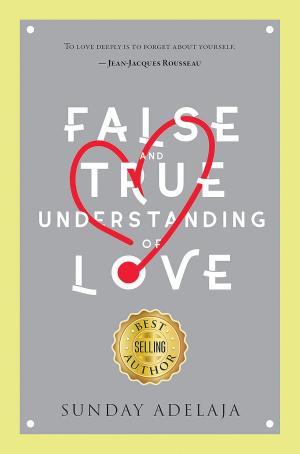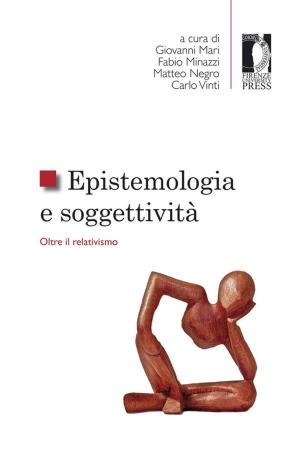The Simulation Hypothesis
An MIT Computer Scientist Shows Why AI, Quantum Physics and Eastern Mystics All Agree We Are In a Video Game
Nonfiction, Computers, General Computing, Science & Nature, Technology, Religion & Spirituality, Philosophy| Author: | Rizwan Virk | ISBN: | 1230003092439 |
| Publisher: | Bayview Books | Publication: | March 31, 2019 |
| Imprint: | Language: | English |
| Author: | Rizwan Virk |
| ISBN: | 1230003092439 |
| Publisher: | Bayview Books |
| Publication: | March 31, 2019 |
| Imprint: | |
| Language: | English |
The Simulation Hypothesis, by best-selling author, renowned MIT computer scientist and Silicon Valley video game designer Rizwan Virk, is the first serious book to explain one of the most daring and consequential theories of our time. Riz is the Executive Director of Play Labs @ MIT, a video game startup incubator at the MIT Game Lab.
Drawing from research and concepts from computer science, artificial intelligence, video games, quantum physics, and referencing both speculative fiction and ancient eastern spiritual texts, Virk shows how all of these traditions come together to point to the idea that we may be inside a simulated reality like the Matrix.
The Simulation Hypothesis is the idea that our physical reality, far from being a solid physical universe, is part of an increasingly sophisticated video game-like simulation, where we all have multiple lives, consisting of pixels with its own internal clock run by some giant Artificial Intelligence. Simulation theory explains some of the biggest mysteries of quantum and relativistic physics, such as quantum indeterminacy, parallel universes, and the integral nature of the speed of light.
Recently, the idea that we may be living in a giant video game has received a lot of attention:
“There’s a one in a billion chance we are not living in a simulation” -Elon Musk
“I find it hard to argue we are not in a simulation.” -Neil deGrasse Tyson
“We are living in computer generated reality.” -Philip K. Dick
Video game technology has developed from basic arcade and text adventures to MMORPGs. Video game designer Riz Virk shows how these games may continue to evolve in the future, including virtual reality, augmented reality, Artificial Intelligence, and quantum computing. This book shows how this evolution could lead us to the point of being able to develop all encompassing virtual worlds like the Oasis in Ready Player One, or the simulated reality in the Matrix.
While the idea sounds like science fiction, many scientists, engineers, and professors have given the Simulation Hypothesis serious consideration. Futurist Ray Kurzweil has popularized the idea of downloading our consciousness into a silicon based device, which would mean we are just digital information after all. Some, like Oxford lecturer Nick Bostrom, goes further and thinks we may in fact be artificially intelligent consciousness inside such a simulation already!
But the Simulation Hypothesis is not just a modern idea. Philosophers like Plato have been telling us that we live in a “cave” and can only see shadows of the real world. Mystics of all traditions have long contended that we are living in some kind of “illusion “and that there are other realities which we can access with our minds. While even Judeo-Christian traditions have this idea, Eastern traditions like Buddhism and Hinduism make this idea part of their core tradition — that we are inside a dream world (“Maya” or illusion, or Vishnu’s Dream), and we have “multiple lives” playing different characters when one dies, continuing to gain experience and “level up” after completing certain challenges. Sounds a lot like a video game!
Whether you are a computer scientist, a fan of science fiction like the Matrix movies, a video game enthusiast, or a spiritual seeker, The Simulation Hypothesis touches on all these areas, and you will never look at the world the same way again!
“The Simulation Hypothesis by Riz Virk lays out both the technical aspects of computer simulation and the mystical reasons why we can take Philip K. Dick seriously when he proposed that we are living in a computer-generated reality." --Tessa B. Dick, author of Conversations with Philip K. Dick, wife of Philip K. Dick
" In this book, Riz Virk combines the mind of a scientist with the heart of a mystic, using video games to explain the virtual reality that we live in.” --Dannion Brinkley, bestselling author of Saved by the Light and At Peace in the Light
"The Simulation Hypothesispresents a radical alternative to current models of reality. Riz Virk’s book, relying his unique experience designing digital games, results in a stunning reappraisal of what it means to be human in an infinite universe." -- Jacques Vallée, venture capitalist, author of Forbidden Science, former NASA and Stanford Research Institute scientist
“The Simulation Hypothesisis one of the few that could convince me that I probably live in a simulated universe. Encompassing the history of religions, philosophy, pop culture, physics and computers, Virk draws connections which show this theory is not only feasible but probably correct. If this sounds mind blowing, it is! I highly recommend this book - it expanded my mind's bandwidth!" --Diana Walsh Pasulka, Professor of Philosophy and Religion, University of North Carolina Wilmington, author of American Cosmic: UFOs, Religion, Technology
The Simulation Hypothesis, by best-selling author, renowned MIT computer scientist and Silicon Valley video game designer Rizwan Virk, is the first serious book to explain one of the most daring and consequential theories of our time. Riz is the Executive Director of Play Labs @ MIT, a video game startup incubator at the MIT Game Lab.
Drawing from research and concepts from computer science, artificial intelligence, video games, quantum physics, and referencing both speculative fiction and ancient eastern spiritual texts, Virk shows how all of these traditions come together to point to the idea that we may be inside a simulated reality like the Matrix.
The Simulation Hypothesis is the idea that our physical reality, far from being a solid physical universe, is part of an increasingly sophisticated video game-like simulation, where we all have multiple lives, consisting of pixels with its own internal clock run by some giant Artificial Intelligence. Simulation theory explains some of the biggest mysteries of quantum and relativistic physics, such as quantum indeterminacy, parallel universes, and the integral nature of the speed of light.
Recently, the idea that we may be living in a giant video game has received a lot of attention:
“There’s a one in a billion chance we are not living in a simulation” -Elon Musk
“I find it hard to argue we are not in a simulation.” -Neil deGrasse Tyson
“We are living in computer generated reality.” -Philip K. Dick
Video game technology has developed from basic arcade and text adventures to MMORPGs. Video game designer Riz Virk shows how these games may continue to evolve in the future, including virtual reality, augmented reality, Artificial Intelligence, and quantum computing. This book shows how this evolution could lead us to the point of being able to develop all encompassing virtual worlds like the Oasis in Ready Player One, or the simulated reality in the Matrix.
While the idea sounds like science fiction, many scientists, engineers, and professors have given the Simulation Hypothesis serious consideration. Futurist Ray Kurzweil has popularized the idea of downloading our consciousness into a silicon based device, which would mean we are just digital information after all. Some, like Oxford lecturer Nick Bostrom, goes further and thinks we may in fact be artificially intelligent consciousness inside such a simulation already!
But the Simulation Hypothesis is not just a modern idea. Philosophers like Plato have been telling us that we live in a “cave” and can only see shadows of the real world. Mystics of all traditions have long contended that we are living in some kind of “illusion “and that there are other realities which we can access with our minds. While even Judeo-Christian traditions have this idea, Eastern traditions like Buddhism and Hinduism make this idea part of their core tradition — that we are inside a dream world (“Maya” or illusion, or Vishnu’s Dream), and we have “multiple lives” playing different characters when one dies, continuing to gain experience and “level up” after completing certain challenges. Sounds a lot like a video game!
Whether you are a computer scientist, a fan of science fiction like the Matrix movies, a video game enthusiast, or a spiritual seeker, The Simulation Hypothesis touches on all these areas, and you will never look at the world the same way again!
“The Simulation Hypothesis by Riz Virk lays out both the technical aspects of computer simulation and the mystical reasons why we can take Philip K. Dick seriously when he proposed that we are living in a computer-generated reality." --Tessa B. Dick, author of Conversations with Philip K. Dick, wife of Philip K. Dick
" In this book, Riz Virk combines the mind of a scientist with the heart of a mystic, using video games to explain the virtual reality that we live in.” --Dannion Brinkley, bestselling author of Saved by the Light and At Peace in the Light
"The Simulation Hypothesispresents a radical alternative to current models of reality. Riz Virk’s book, relying his unique experience designing digital games, results in a stunning reappraisal of what it means to be human in an infinite universe." -- Jacques Vallée, venture capitalist, author of Forbidden Science, former NASA and Stanford Research Institute scientist
“The Simulation Hypothesisis one of the few that could convince me that I probably live in a simulated universe. Encompassing the history of religions, philosophy, pop culture, physics and computers, Virk draws connections which show this theory is not only feasible but probably correct. If this sounds mind blowing, it is! I highly recommend this book - it expanded my mind's bandwidth!" --Diana Walsh Pasulka, Professor of Philosophy and Religion, University of North Carolina Wilmington, author of American Cosmic: UFOs, Religion, Technology















